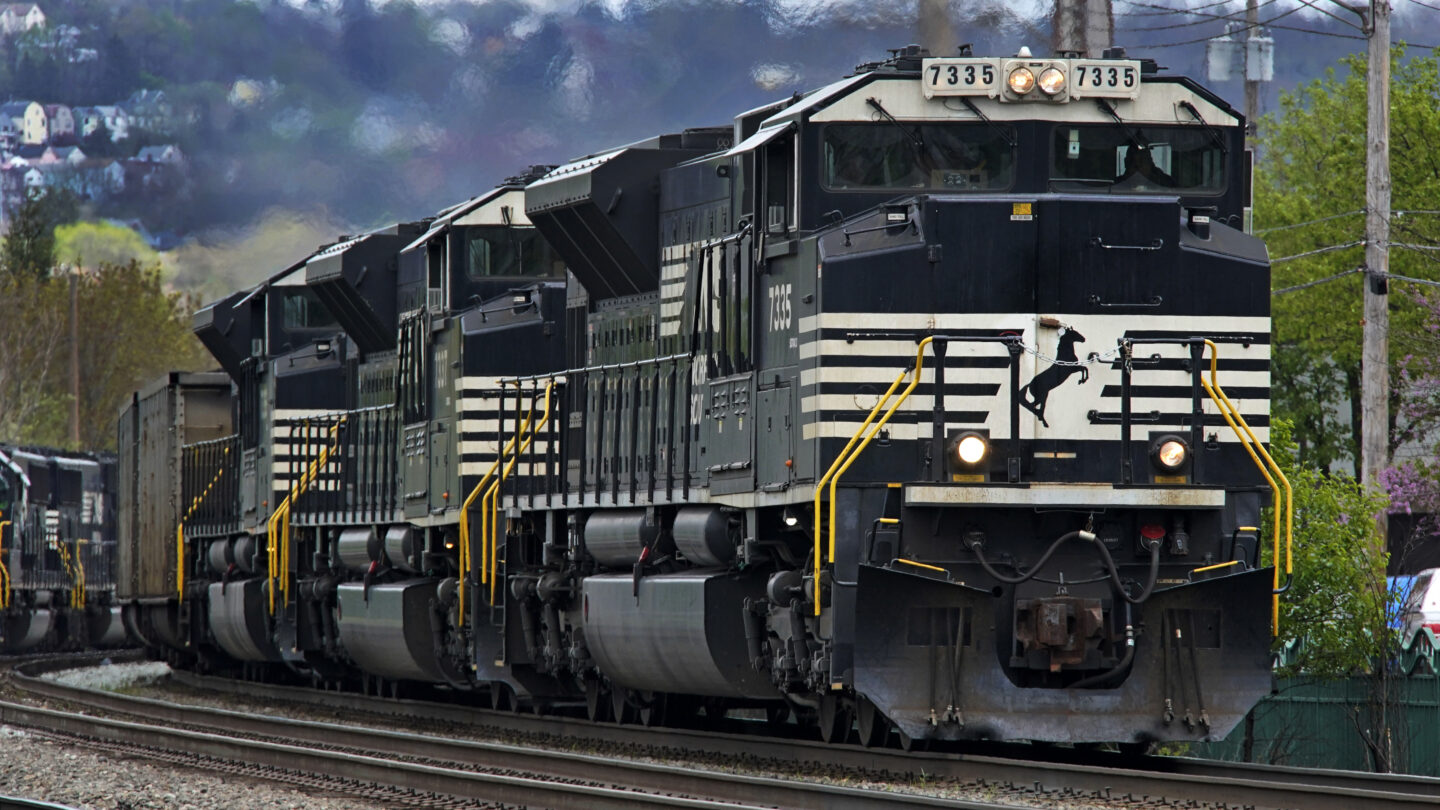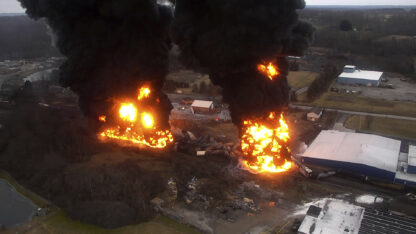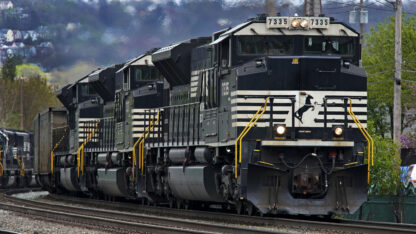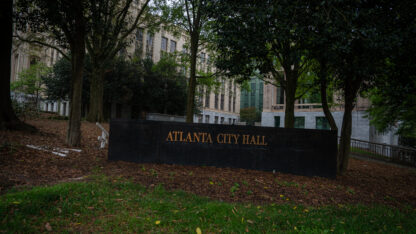This story was updated at 6:43 p.m.
Norfolk Southern wants its shareholders to back its current management team and strategy and reject a bid from a group of investors seeking to take control of the railroad.
The Atlanta-based railroad urged shareholders to reject Ancora Holdings’ eight board nominees in a proxy statement Monday morning with the Securities and Exchange Commission. Norfolk Southern also nominated two new board members of its own — a former Amtrak CEO and a former U.S. Senator — that the railroad argues will provide valuable fresh perspective without derailing its current plan.
“We are confident that the continued execution of our balanced strategy — under the vision and leadership of Alan Shaw — is critical as we prioritize operational rigor, safety, and service,” said board chair Amy Miles.
Since 2019, Norfolk Southern has run a version of precision scheduled railroading, which has become the industry’s standard operating model, to rely on running fewer, longer trains on a tighter schedule, so the railroad won’t need as many crews, locomotives or maintenance workers.
However, under Shaw, the railroad backed away from that model’s short-term cost-cutting to keep additional staff on hand during downturns to respond better when the economy rebounds. Norfolk Southern has also invested in improving safety over the past year since its fiery derailment in East Palestine, Ohio.
Ancora argues that Norfolk Southern hasn’t done nearly enough to improve its efficiency because its profits continue to disappoint, and its operating ratio — a key measure of profitability that rail investors track — lags behind the other major freight railroads. So Ancora wants to hire former UPS executive Jim Barber and former CSX chief operating officer Jamie Boychuk to run the railroad.
“Our slate and proposed management team have publicly committed to pursuing ‘stronger growth’ and implementing a ‘reliable network strategy that will leverage Norfolk Southern’s existing assets and people to get the organization to the right destination,’” Ancora said in a statement.
The Ohio-based investment firm also argues that Shaw and Norfolk Southern mishandled their response to the East Palestine derailment. The railroad has said the derailment will cost it at least $1.1 billion and that amount will grow as the cleanup continues and lawsuits and fines pile up. The town is eager to recover, but many residents worry about the potential long-term health consequences of the derailment.
In Monday’s filing, Norfolk Southern disclosed that Shaw received a 37% raise last year to receive $13.4 million in total compensation in 2023. Ancora called that an alarming “failure of corporate governance” that “reinforces the need for sweeping changes.”
Three rail unions — the massive SMART-TD union that represents conductors, the Brotherhood of Locomotive Engineers and Trainmen and the Brotherhood of Railroad Signalmen — have issued statements supporting the current management team at Norfolk Southern.
“Ancora has been pointing to the East Palestine derailment as a failure by Alan Shaw and his team, but we believe that the PSR (precision scheduled railroading) model is directly linked to the East Palestine failure,” Jerry G. Sturdivant, a BLET general chairman at Norfolk Southern, said Monday. “Since the derailment last year, NS’ CEO has risen to the occasion and, through his leadership, NS has become a safer, more efficient, and customer-focused company again.”
The head of the Federal Railroad Administration cautioned that the railroad would face additional scrutiny if it abandoned any of its efforts to improve safety after a management change.
The chairman of the Surface Transportation Board, Martin Oberman, told the Progressive Railroading trade magazine that Norfolk Southern had been one of the industry leaders in rebuilding its workforce and improving service after the deep cuts of the last six years.
“If the activist investor succeeds at Norfolk Southern, it will be a huge detriment to the industry. It will have other CEOs looking over their shoulders. And it’s just a very bad trend,” Oberman said to the magazine.
But Ancora said regulators’ and labor groups’ fears are misplaced.
“Policymakers and labor leaders should be able to take comfort in our slate’s commitments to honoring union agreements, leveraging the company’s existing workforce and investing in a network strategy that drives growth,” the investment group said.
The date of the railroad’s annual meeting hasn’t been set yet.









